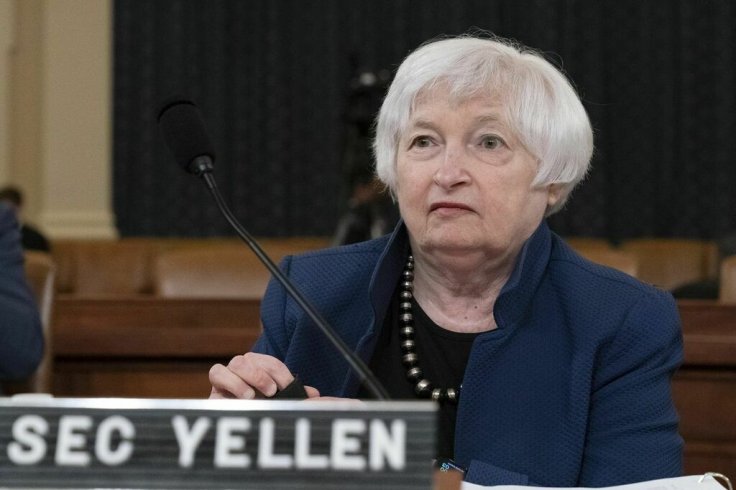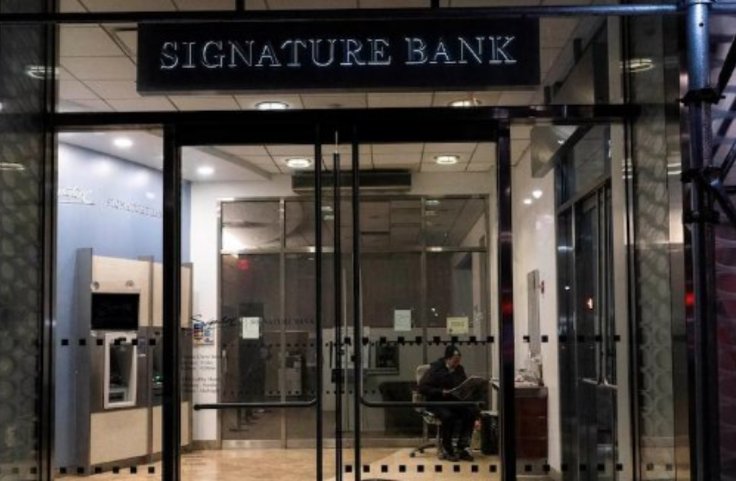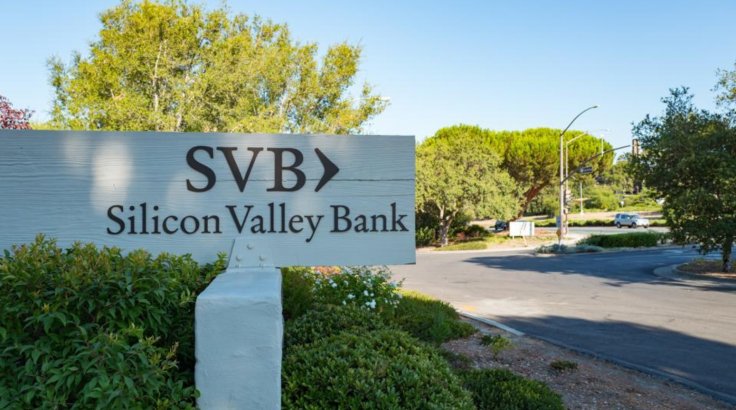The Federal Reserve announced on Sunday night that all depositors at Silicon Valley Bank will get their money back as it was revealed that a second bank, Signature Bank, has been closed. Signature Bank's closure marks the third-largest failure in U.S. banking history and comes just two days after the Fed shuttered Silicon Valley Bank after it collapsed.
The Federal Deposit Insurance Corporation (FDIC) took control of the management of Signature Bank, which, according to the New York state's Department of Financial Services, had $110.36 billion in assets and $88.59 billion in deposits at the end of the previous year, according to media reports.
Another One Bites the Dust

Treasury Secretary Janet Yellen announced on Sunday morning that there will be no government bailout, and the Fed announced that no taxpayer funds would be used. However, Yell assured that all those with money in the collapsed SVB will get their money back.
"Any losses to the Deposit Insurance Fund to support uninsured depositors will be recovered by a special assessment on banks, as required by law," Yellen said in a statement.

The statement further added that "the Federal Reserve Board on Sunday announced it will make available additional funding to eligible depository institutions to help assure banks have the ability to meet the needs of all their depositors."
The taxpayers do not pay for the Federal Reserve. Instead, it is financed directly through interest from its own financial operations.
According to a Reuters report, workers appeared to gather at the company's Manhattan headquarters for meetings on Sunday, ordering food from an Italian restaurant named Carmine's and Starbucks coffee. A small number of people slowly left the premises, upon the announcement of the closure.
On Sunday night, Joe Biden offered consolation to SVB customers while stating that those "responsible for this mess" ought to be brought to justice.

"The American people and American businesses can have confidence that their bank deposits will be there when they need them," Biden said.
"I am firmly committed to holding those responsible for this mess fully accountable and to continuing our efforts to strengthen oversight and regulation of larger banks so that we are not in this position again."
Signature's collapse followed the shutdown of Silicon Valley Bank's Friday shutdown, the second-largest in American history after Washington Mutual, which went down during the 2008 financial crisis.
Investors got uneasy about how quickly customer withdrawals caused startup-focused SVB, the 16th largest lender in the United States, to fail. As the incident last week erased more than $100 billion in market value for US banks, government officials moved quickly over the weekend to try and regain public trust in the banking system.
Fed Comes in to Help
The Federal Deposit Insurance Cooperation (FDIC) held an auction of Silicon Valley Bank's assets on Sunday in an effort to secure the bank before the market opened on Monday. No buyer, according to CNN, was located.

"After receiving a recommendation from the boards of the FDIC and the Federal Reserve, and consulting with the President, Secretary Yellen approved actions enabling the FDIC to complete its resolution of Silicon Valley Bank, Santa Clara, California, in a manner that fully protects all depositors," the Federal Reserve's statement said.
"Depositors will have access to all of their money starting Monday, March 13. No losses associated with the resolution of Silicon Valley Bank will be borne by the taxpayer."
The joint statement from Martin Gruenberg, chair of the FDIC, Janet Yellen, secretary of the Treasury, and Jerome Powell, chair of the Federal Reserve, revealed for the first time that Signature Bank was also in trouble.
Signature Bank had 38 private client offices operated located in New York, Connecticut, California, and North Carolina.

It was founded in 2001 for rich clients with assets worth more than $250 000.
"We are going after the guy who started his business in Brooklyn and is now worth $20 million," said founder and chief executive Joseph DePaolo in an interview with Crain's New York Business.
"We are also announcing a similar systemic risk exception for Signature Bank, New York, New York, which was closed today by its state chartering authority. All depositors of this institution will be made whole.
"As with the resolution of Silicon Valley Bank, no losses will be borne by the taxpayer."
In a decision that sent shockwaves through the nation, the government on Friday took control of Silicon Valley, the 14th-largest city in the country.
Its failure has left small business owners who relied on the bank to run their enterprises in a state of utter panic. The bank was established to assist tech companies and start-ups.









